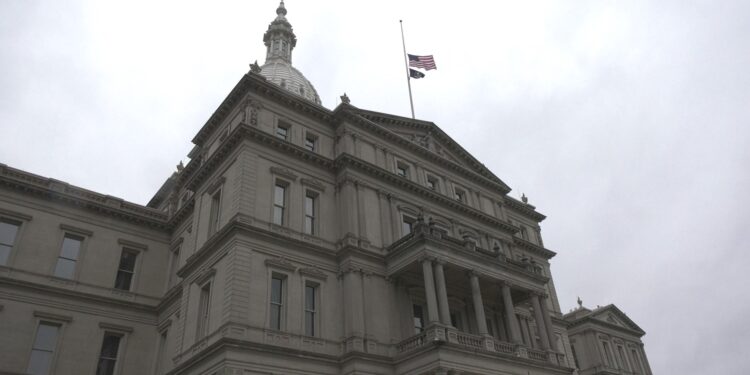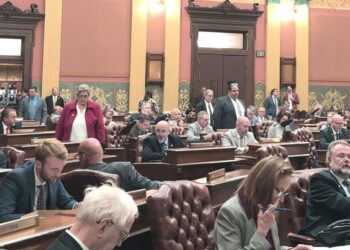LANSING, Mich. (WZMQ) – Michigan could face a multibillion-dollar funding challenge in the next few years as new federal rules under President Donald Trump’s One Big Beautiful Bill Act are set to cap how much the state can collect from its hospital provider tax, a move that could eventually cost hundreds of millions of dollars in Medicaid revenue.
The state currently taxes hospitals and health insurers to leverage federal matching funds for Medicaid. Together, those provider taxes generate roughly $9 billion each year, about $6 billion from hospitals and $3 billion from health insurers.
“We tax hospitals, we get their revenue from the tax, we use that revenue to draw down federal matching funds, and most of it goes back to the hospitals,” said Robert Schneider, Senior Research Associate with the Citizens Research Council of Michigan.
That $9 billion is no longer part of the regular budget appropriations. Instead, lawmakers moved it into the language sections of the budget, giving the Department of Health and Human Services (DHHS) direct authority to spend it. The shift means those funds aren’t counted in Michigan’s official budget total, even though they still flow through the state’s Medicaid system.
“It’s not entirely clear why they took this action,” Schneider said. “But that change means when you add up the budget, that $9 billion isn’t included, even though it’s still being spent.”
Moving forward, the state may have to make up some portion of that $9 billion in revenue once the new federal limits take effect. But all of the revenue is expected to remain available this fiscal year.
When you include these tax-related expenditures, it boosts the state’s overall budget to about $84 billion, even though recent budget figures cite closer to $75 billion in direct spending.
Under the One Big Beautiful Bill Act, new caps on provider taxes won’t begin phasing in until 2028, and they won’t be fully implemented until 2032. Once that phase-in is complete, about $2 billion in Medicaid hospital payments could be at risk, though not the entire amount.
“When it goes down, we’ll lose some of that,” Schneider said. “The state then will need to decide, do we have the hospitals absorb this hit, or do we look inward to our budget and find another $500 million or $700 million or some larger figure in other discretionary revenue?”
A separate tax on health insurers, known as the Insurance Provider Assessment, is also under federal scrutiny. Regulators have raised concerns that Michigan’s current structure charges Medicaid plans higher fees than private insurers, a practice that allows the state to draw extra federal matching funds.
To prepare, Michigan passed a new law alongside this year’s bipartisan budget, authorizing DHHS to rewrite the assessment if federal officials order changes. That fix is designed to prevent an immediate loss of Medicaid funding and keep services stable.
“It allows our Department of Health and Human Services to fix the tax in a way that will pass muster with the federal government,” Schneider said.
Schneider said that, big picture, there is some future risk to this funding, but very little immediate risk now that Michigan has passed legislation to address the Insurance Provider Assessment if the federal government requires changes.
“You could have less access to care if the Medicaid program takes major cuts,” he added. “If you’re a hospital, especially a smaller hospital, one in a rural area, you need to worry about what the potential impact is of those provider-tax reductions.”










